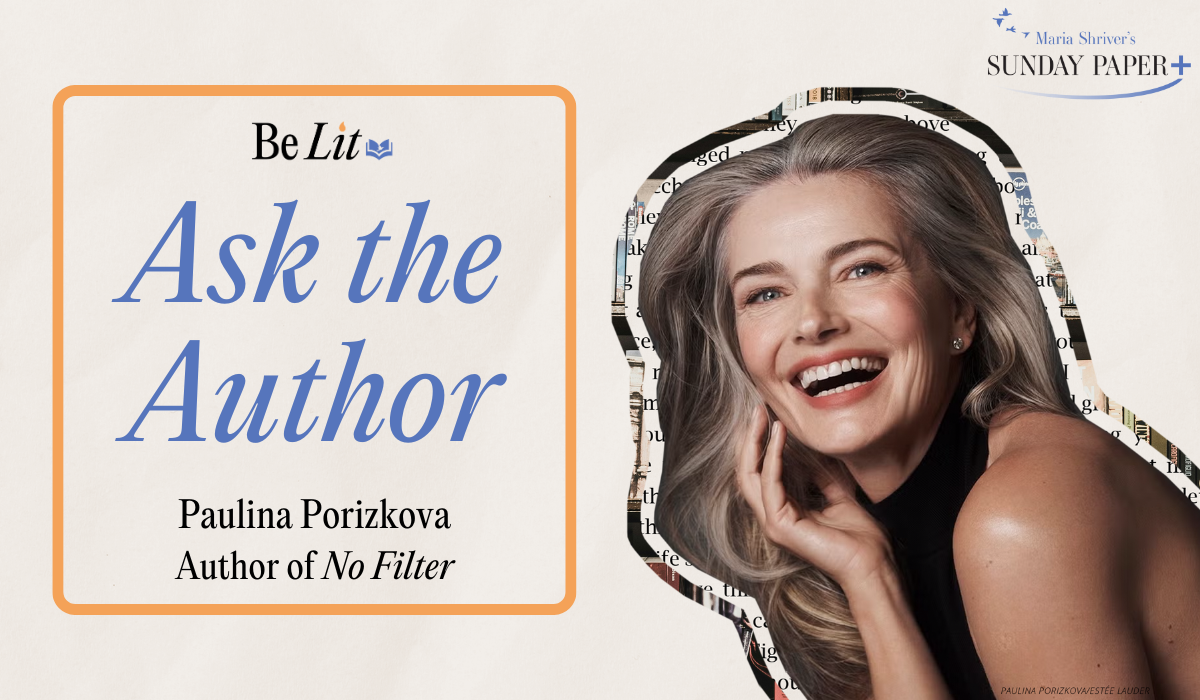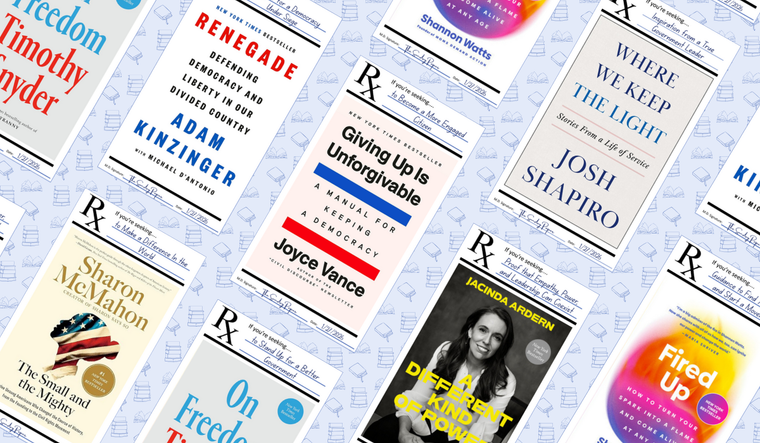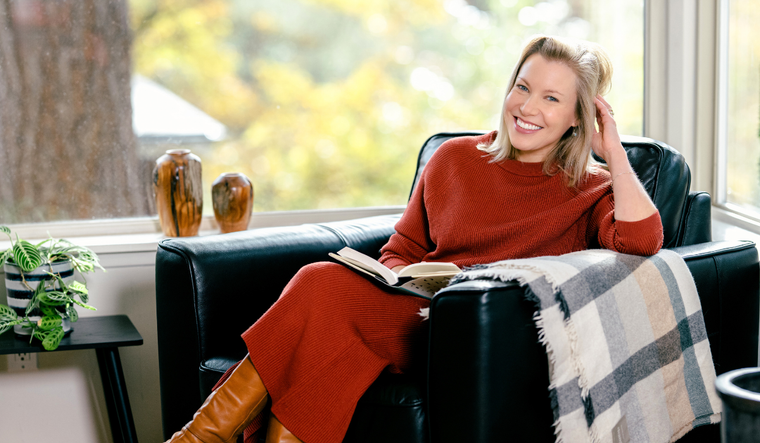Ask the Author: A Look Back at Paulina Porizkova’s “No Filter”
One of the first books published by The Open Field, No Filter: The Good, the Bad, and the Beautiful was Paulina Porizkova’s “open vein.” A book so deeply personal she felt personally intertwined with the reception of the book—a rejection of the book would be a rejection of her, a rejection of her soul.
A surprise to possibly only Porizkova herself, her raw and unfiltered examination of heartbreak, grief, relationships, and aging resonated with women everywhere.
Today I find Paulina lounging on her porch, fresh off vacation, back as the face of Estée Lauder, newly engaged and deeply, magically in love. I asked Porizkova to reflect on No Filter—the fear she felt before publishing, the “shocking” response, and what it means to her now.
A CONVERSATION WITH PAULINA PORIZKOVA
What do you remember about the response to No Filter? What were your favorite parts of the whole experience?
There were a lot of really wonderful moments. This is my third book—I had written a children's book and a novel. I'm somewhat familiar with having a book come out—the press around it, going to bookstores, and all of that. What was really different about this book was the way it was received by the very women I wrote the book for.
One of the first interactions I had was at a book party thrown for me in Miami. It was a loud, noisy room, sort of disco-ish. A very fabulous Miami crowd and I felt a little out of place. I didn't really understand how this was a book party for me, but it was. Right off the bat this woman came up to me, somewhat younger than I, and she opened her soul to me. She cried. She told me about her life. She wanted to hug me. And this is what I have been getting from the publication of this book: all these women that read it and felt a mirror of their life or their experiences.
The connection that I've gotten with women that I’ve never had before was really quite magical and continues to be magical.
What did you learn? Do you wish you had done anything differently?
I wouldn't have changed a single thing. I was worried before the book came out. There’s this saying, “Writing is easy. All you do is sit at a typewriter and open a vein.” That's the way I felt.
What I wrote was me at that time. Very raw, very honest, and therefore very vulnerable. So when the book went out to print I got frightened because I felt if people reject the book, they're rejecting me. They're rejecting my soul. They're rejecting my story and who I am as a person. That's bigger than rejection based on the way I look, or rejection based on a novel I write, or a role I play in a movie. Those are just parts of me. This book is me so that would really hurt.
So the result was in some ways shocking. I did not expect that kind of outpouring of love. It was so different from what I was afraid of, which was complete rejection.
Looking back on it now, what does No Filter mean to you? How do you think of the book and the whole experience?
I really poured my heart out with—as it's titled—no filters. I'm very proud of the book and I feel like it encompassed my life up to that point. It's not completely a memoir because there was much that I wasn't talking about, but what I was talking about was the emotional truth of my life. I tried to let people understand the full version of me, where I came from and how I got to be me.
The book is a moment in time. It was the cherry on top of the cake that capped off that period of my life and the new woman that I was becoming, leading up to the book. Since the book, it's like I started a new chapter.
If you were going to add a chapter to the book today, what would that be?
Well, it would have to it would be an entire new book. No Filter was kind of a breaking point. What Maria had narrowed in on, maybe from following me on Instagram, was that I was rebuilding the person I was.
When writing the book I thought I had rebuilt, but I hadn't quite. It was the final puzzle piece that completed the picture. And since then, it's like I've started a whole different life.
So what are you up to now? What does this different life look like?
I'm just about to start on another book. I resumed my collaboration with Estee Lauder. I just became engaged two weeks ago. Even as I wrote the book, I thought marriage was not for me. Never again. And here I am having met the man that I feel like I should have met all along. But again, I wasn't ready to meet him until after I finished the book.
Another really important part of the book, the most rewarding, is the women who open themselves up to me about their marriages, and divorces, and their misfortunes. Because at this point in mid-life, we've all had bad shit happen to us and they want to share with me because I shared with them. It's just this beautiful back and forth connection.
Something else that resonated was talking about aging and being a woman unsure about how to go about the business of aging. I know it seems like it should be self-evident: if you're fortunate, you get to age—but, no! We have so many choices now about how we want to approach aging. There’s a community of women who don't want to be stuck in a tunnel of what it means to be ‘aging gracefully,’ but actually a sort of a self-acceptance. Self-acceptance of who you are and what you look like.
It doesn't matter what country I'm in, a woman will run up to me and say, Thank you for what you're doing for women. Thank you for what you've done for me. I'm still caught by it, like I didn't do anything. All I'm doing is letting you in on how I feel. But it strikes a chord in women that there's somebody that speaks honestly and reflects their feelings.
It’s this really wonderful, beautiful second part of my life that I never anticipated and I’m happier than I've ever been in my life. It’s really an extraordinary thing, this second half of the life—I guess maybe a third of my life—if I'm lucky, it would be a half.
Follow along with Paulina on Instagram.
Please note that we may receive affiliate commissions from the sales of linked products.




